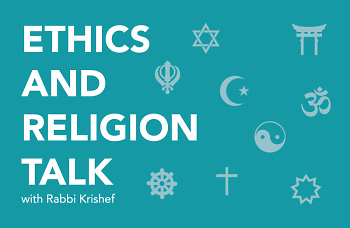This week, we present responses which argue that no, five-year-old children should not be asked to make such decisions. Next week, in part 2, we’ll see responses which argue that in cases such as this one, parents should honor their child’s wishes.
The Rev. Sandra Nikkel, head pastor of Conklin Reformed Church, responds:
"I'm surprised this is even a question. Our brains are not even fully developed until after we turn 20 years old! How could anyone really believe that a child this young can make a life-or-death decision? Parents, teachers, and spiritual leaders are there to protect and guide the child and teach him/her to make wise decisions. But this doesn't happen overnight. It is a long life process.
"I can understand a parent's desire to allow children to make decisions on their own. Although it is good to trust our children's instincts and wishes, we cannot expect them to be equipped to make life-changing decisions. It is our responsibility to do the best we can to make the best decisions for them as we remind ourselves that we will be accountable for the way we guided them, loved them, and protected them. ‘Train up a child in the way he should go, and when he is old he will not depart from it.’ (Proverbs 22:6)"
Father Michael Nasser, who writes from an Eastern Christian perspective and is Pastor of St. Nicholas Orthodox Christian Church, responds:
"Orthodox Christianity, like most religious systems and most cultures, does not burden children with the sole authority to make decisions for which they lack the appropriate cognitive ability, knowledge and experience. As heartbreaking as this situation is, we believe it is not a blessing but a burden to a child to place such a decision solely on their shoulders. We believe that children can have their own type of wisdom--and according To Jesus, sometimes this wisdom surpasses adult wisdom--but parents should always play their God-given role in making the decisions for their children until they are of the appropriate age to make those decisions. Orthodoxy has been criticized by some for admitting infants into the full membership in the Church through all of the sacraments, including Baptism and Holy Communion. Other Christians argue that an ‘age of reason’ must be reached by a child, who must make these kind of decisions for themselves. Of course as we all age, we will make more and more decisions for ourselves but this does not preclude parents making appropriate decisions for their children until such time."
Imam Kip Curnutt, Director of Religious Education and Associate Imam of Masjid At-Tawheed in Grand Rapids, responds:
"In Islam we have a Prophetic tradition the meaning of which is that there are 3 types of people who are not morally accountable in front of God for their actions; the sleeping person until they awaken, the child until they reach maturity, and the person who has lost sanity until it is regained. We derive from this that these three conditions; consciousness, maturity, and sound intellect must be in place in order for one to be responsible for their actions. In light of that, I believe good parenting involves listening to a child's wishes and being responsive to their perspective while knowing at the same time that when it comes down to it, the parent is the one who is morally responsible for making decisions in the child's best interest and not the child."
Father Kevin Niehoff, O.P., a Dominican priest who serves as Judicial Vicar, Diocese of Grand Rapids, responds:
"I do not see a five-year-old making an end-of-life decision. The article is about a family caring for a loved one at the end of life. Instead of an elderly individual, she is a child of five. The issues are the same. The child’s parents are the decision-makers, with consultation from the gravely ill person.
"The United States Conference of Catholic Bishops has on its website a document entitled, ‘Caring for Loved Ones at Life’s End’ (https://www.usccb.org/end-of-life-care). The ten points mentioned are: ‘Invite God In, Listen, Inform Yourself, Be Steadfast in Compassion, Help Them Seek Closure, Provide Opportunities for Resolution, Reminisce, Provide a Peaceful Presence, Show Tenderness, and Bear Their Transition Patiently.’
"The child’s family demonstrates the virtue of patiently bearing the burden of helping their child on her journey to eternal life. The family is doing so gracefully. In the process, they are faithfully following the proper care of a loved one at life’s end. The family demonstrates the value the Catholic Church places in the dignity of human life."
This column answers questions of Ethics and Religion by submitting them to a multi-faith panel of spiritual leaders in the Grand Rapids area. We’d love to hear about the ordinary ethical questions that come up in the course of your day as well as any questions of religion that you’ve wondered about. Tell us how you resolved an ethical dilemma and see how members of the Ethics and Religion Talk panel would have handled the same situation. Please send your questions to [email protected].
The Rapidian, a program of the 501(c)3 nonprofit Community Media Center, relies on the community’s support to help cover the cost of training reporters and publishing content.
We need your help.
If each of our readers and content creators who values this community platform help support its creation and maintenance, The Rapidian can continue to educate and facilitate a conversation around issues for years to come.
Please support The Rapidian and make a contribution today.
